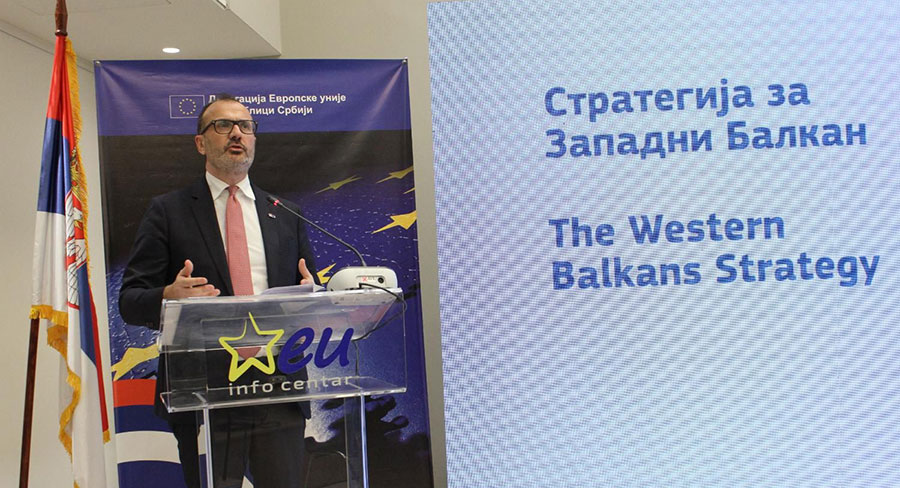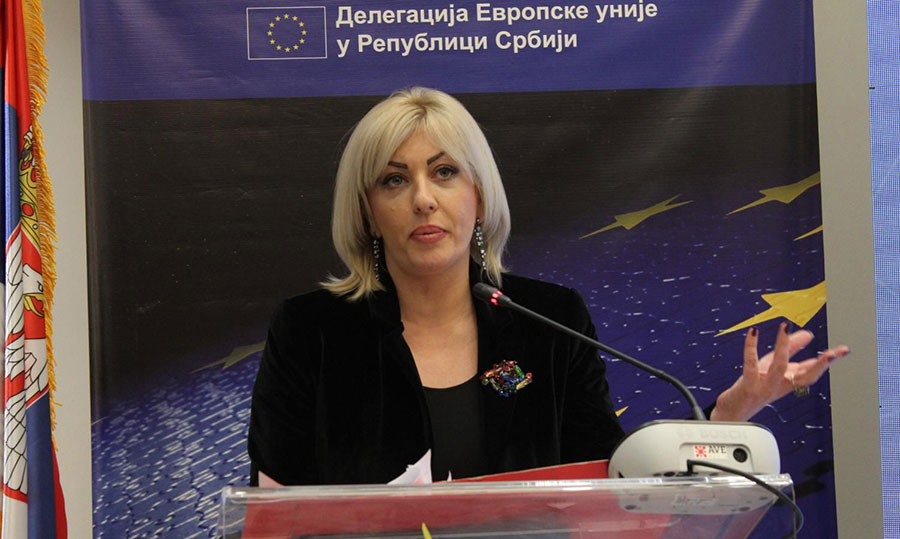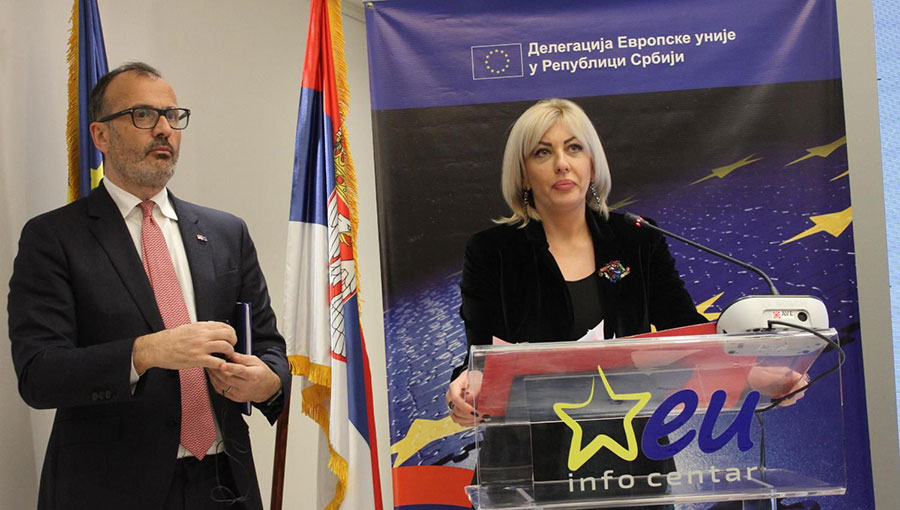Head of the EU Delegation to Serbia Sem Fabrizi presented the EU Enlargement Strategy at the EU Info Centre, describing the day as historic for the entire Western Balkans, a region with a clear European future which, nonetheless, has to resolve all outstanding issues prior to accession.
“There will be no softening of the conditions. The EU path is very clear,” Fabrizi said and added that all Western Balkans countries should resolve their open bilateral issues and maintain the reconciliation process.
Ambassador Fabrizi said that Serbia was given an indicative accession date for the first time, describing the Strategy as “very positive news for Serbia.”
“This is a call to make a major political breakthrough in Serbia in order to achieve the aspiration of joining the EU. I believe Serbia is already moving in the right direction,” Fabrizi said, adding that the good work done so far should continue.

FoNet
He reiterated that Serbia and Montenegro were at the forefront of the enlargement process, noting, however, that other countries in the region should be given the same perspective.
“We are a family and, clearly, we share a common future,” EU Ambassador said.
The Strategy, according to him, strikes a new deal for the WB6, as each of them has been given a unique membership offer.
Fabrizi said there was still much to discuss, including the rule of law, independent judiciary, market economy and political resolve, describing reconciliation and normalisation of relations with Kosovo as elements of key importance for the process.
“Before joining the EU, a legally binding agreement must be reached and implemented, one that would lead to comprehensive normalisation of relations,” Fabrizi notes.
Presidents of Serbia and Kosovo, Aleksandar Vucic and Hasim Thaci, agreed to start a new phase in the dialogue, he said. I hope the two sides will reach an agreement, he noted.
Joksimovic: Western Balkans Strategy sends a most powerful political message

FoNet
Minister of European Integration Jadranka Joksimovic said that a legally binding agreement was no news, adding that its content must be agreed within the framework of the dialogue in order to find a sustained solution to normalisation of relations for the benefit of all citizens.
Hardly has there ever been a more powerful political message since Serbia has embarked on the European path, Joksimovic said. She commended the merit-based approach and the fact that the document assessed the progress of countries individually.
“We are happy to have been recognised as the most successful candidate,” the Minister said and described the Strategy as a positive document for Serbia and a more credible membership perspective.
Jadranka Joksimovic said that, by adopting the document, the EU finally kicked off a sort of a regenerative agenda in order to make itself stronger and better prepared to receive new members.
Asked to comment on the safety of journalists, Joksimovic condemned the attacks on the press, saying that media situation is one of the segments of the rule of law.
She added that a media strategy was being drawn up and that it would help to define the media sector more accurately, stressing that, compared to some other countries, the civil society in Serbia was more involved in that process.




